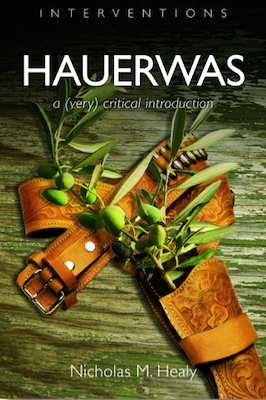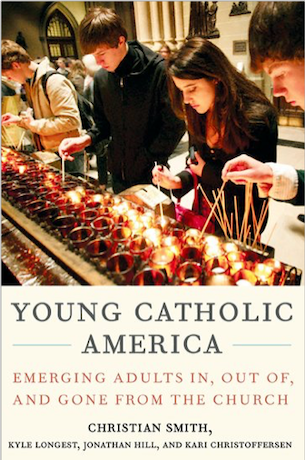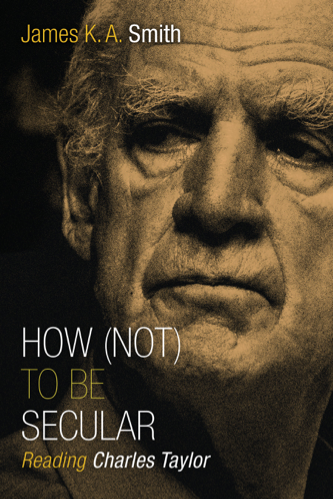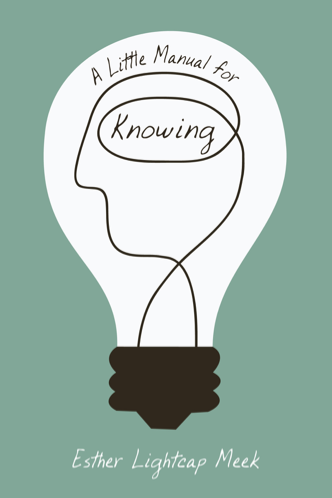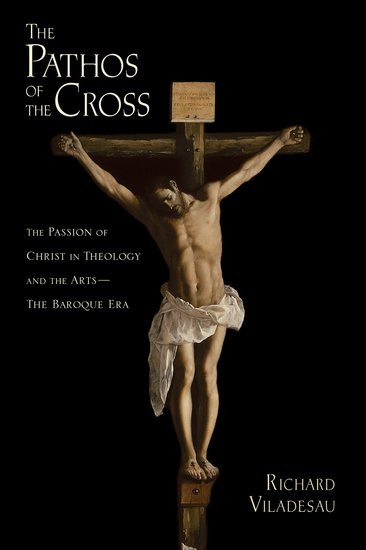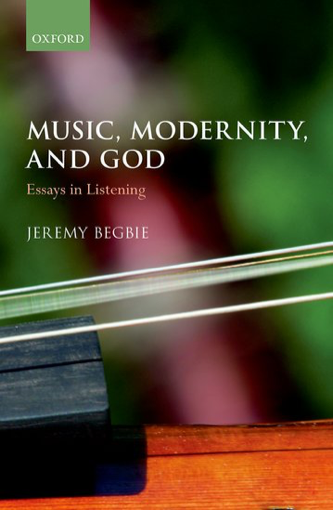PREVIEW
The player for this Journal volume is only available to current members or listeners with a legacy account. If you have an active membership, log in here. If you’d like to become a member — with access to all our audio programs — sign up here.
Guests heard on Volume 123
Nicholas M. Healy, author of Hauerwas: A (Very) Critical Introduction, on some of the practical and theological weaknesses in the writings of Stanley Hauerwas
Christian Smith, author of Young Catholic America: Emerging Adults In, Out of, and Gone From the Church, on the spiritual lives of emerging adults raised within the Roman Catholic Church and taught at Catholic schools
James K. A. Smith, author of How (Not) to Be Secular: Reading Charles Taylor, on Charles Taylor’s explanation (in The Secular Age) of how modern culture came to unlearn the theistic assumption of the West
Esther Lightcap Meek, author of A Little Manual for Knowing, on why pitting “objectivity” against “subjectivity” in describing the nature of knowledge isn’t helpful, and on why all knowing involves making a commitment
Richard Viladesau, author of The Pathos of the Cross: The Passion of Christ in Theology and the Arts — The Baroque Era, on the relationship between formal, propositional, academic theology and the theological expressions found in works of art and music
Jeremy Begbie, author of Music, Modernity, and God: Listening to Music, on why theologians should be more interested in how music and modernity have interacted
Related reading and listening
- A life well lived — In this essay, Stanley Hauerwas explains the breadth and depth of Alasdair MacIntyre’s thought, the goal of which was to help people to act intelligibly and live morally worthy lives. (40 minutes)
- Sacramental Poetics — Poet and Eastern Orthodox believer Scott Cairns explains how a good poem functions like an icon: it assists the process of our becoming aware of what is real, and it is generative in the ways it keeps opening up new understandings. (56 minutes)
- Music that conveys spiritual truths — FROM VOL. 137 Musicologist Michael Marissen discusses the masterful way in which J. S. Bach uses musical idiom and quotation by way of theological counterpoint to the texts of his sacred vocal works. (13 minutes)
- A poet’s relationship to time — FROM VOL. 57 Poet Wilmer Mills (1969–2011) discusses how his agricultural and cross-cultural childhood in Brazil shaped his imagination and his relationship with modernity. (11 minutes)
- Dickinson and modern malaise — FROM VOL. 36 Roger Lundin explains how Emily Dickinson’s understanding of love, nature, religion, and mortality are modern in content. (11 minutes)
- How discovery happens — Esther Lightcap Meek on Michael Polanyi’s account of scientific discovery
- Harbinger of disorder — Mark Mitchell on Michael Polanyi’s recognition of the dangerous dead-end of materialistic reductionism
- Making contact with reality — FROM VOL. 139 Esther Lightcap Meek discusses the realism of philosopher and chemist Michael Polanyi. (23 minutes)
- Steward of knowledge vs. autonomous knower — FROM VOL. 66 Esther Lightcap Meek challenges the modernist view of knowledge, which prefers the figure of the autonomous knower to the figure of a steward of knowledge acquired in part from others. (15 minutes)
- Modernity and the shaping of America — FROM VOL. 48 Historian Jon Butler explains how aspects of modernity were already present and at work in colonial American life prior to 1776. (12 minutes)
- Music, silence, and the order of Creation — In this lecture, Ken Myers explains how it is that our participation in harmonic beauty in music is a kind of participation in the life of God, in Whom all order and beauty coheres and is sustained. (61 minutes)
- Mars Hill Audio Journal, Volume 163 — FEATURED GUESTS: Andrew Youngblood, R. J. Snell, Nicholas Denysenko, Nigel Biggar, Robert McNamara, and David Cayley
- Music and the meaning of Creation — In this 2018 lecture, Ken Myers advocates for a recovery of the pre-Enlightenment idea of the intelligibility of music. (61 minutes)
- Counterpoint as a “spirited discussion” — In this essay, John Ahern explains the beauty and order of counterpoint, the accumulation of multiple melodies that come together in a harmonious whole. (20 minutes)
- Science’s need for philosophy and revelation — D. Stephen Long explores a consistent theme in the work of theologian Hans Urs von Balthasar: the relationship between Christianity, modernity, and secularity. (46 minutes)
- Augusto Del Noce’s critique of modernity — FROM VOL. 128 Physicist and mathematician Carlo Lancellotti discusses the life and work of twentieth-century Italian philosopher, Augusto Del Noce. (25 minutes)
- Faith as the pathway to knowledge — Lesslie Newbigin on authority and the Author of all being
- The integration of theoretical and mythic intelligence — FROM VOL. 156 William C. Hackett discusses the relationships between philosophy and theology, and of both to the meaning embedded in myth. (29 minutes)
- The formation of affections — FROM VOL. 101 James K. A. Smith explains how education always involves the formation of affections and how the form of Christian education should imitate patterns of formation evident in historic Christian liturgy. (15 minutes)
- A fearful darkness in mind, heart, and spirit — Roberta Bayer draws on the work of George Parkin Grant (1918–1988) to argue that our “culture of death” must be countered with an understanding of reality based in love, redemptive suffering, and a recognition of limitations to individual control. (33 minutes)
- How music reflects and continues the created order — Musician, composer, and teacher Greg Wilbur explores how music reflects the created order of the cosmos. (55 minutes)
- Cleansing sea breezes — Thomas C. Oden argues that rather than being conformed to contemporary ideological trends, we should be informed by 2000 years of the Church’s wisdom. And Darrell Amundsen corrects some false claims about the early Church’s views on suicide. (27 minutes)
- Divorcing the spirit of the age — Thomas C. Oden on overcoming the theological faddism of the late twentieth century
- Orienting reason and passions — In an essay titled “The Abolition of Mania” (Modern Age, Spring 2022), Michael Ward applies C. S. Lewis’s insights to the polarization that afflicts modern societies. (16 minutes)
- Developing a Christian aesthetic — In the inaugural lecture for the Eliot Society, titled “Faithful Imaginations in a Meaningful Creation,” Ken Myers addresses the question of the relationship between the arts and the Church. (59 minutes)
- The negation of transcendence — Michael Hanby argues that our current civilizational crisis can be understood as a “new totalitarianism” that negates or disallows every form of transcendence. (32 minutes)
- Lessons from Leviticus — The book of Leviticus may be assumed to be irrelevant for charting a way through the challenges of modernity. Theologian Peter J. Leithart disagrees. (22 minutes)
- Mars Hill Audio Journal, Volume 161 — FEATURED GUESTS: Andrew Wilson, Kyle Edward Williams, Andrew James Spencer, Landon Loftin, Esther Lightcap Meek, Andrew Davison
- Smith, James K. A. — FROM THE GUEST PAGE: James K. A. Smith is Professor of Philosophy at Calvin University, where he holds the Gary & Henrietta Byker Chair in Applied Reformed Theology and Worldview.
- Meek, Esther Lightcap — FROM THE GUEST PAGE: Esther Lightcap Meek is Professor of Philosophy Emeritus at Geneva College, in Western Pennsylvania, and Senior Scholar with The Seattle School for Theology and Psychology.
- Promethean medicine? — Stanley Hauerwas on medicine and limits
- Resituating discussion of “science” and “religion” — Peter Harrison argues that modern Western culture’s partitioning of ‘science’ and ‘religion’ into distinct spheres is a novel categorical conception in history. (58 minutes)
- Suffering and the vocation of medicine — Stanley Hauerwas on why the elimination of suffering is an inadequate (and unrealistic) goal for medicine
- Sources of wisdom (and of doubt) — Roger Lundin shares what he has appreciated about Mars Hill Audio conversations, and he discusses what makes Christian belief so implausible to non-believers. (32 minutes)
- Rehabilitating authority — Authority, argues David Koyzis, is an aspect of the image of God, exercised to fulfill human vocations. (30 minutes)
- Communion of saints — Jessica Hooten Wilson asserts that reading stories of holiness in the lives of “literary saints” helps to cultivate Christian character in us. (25 minutes)
- Stabat Mater dolorosa — Ken Myers offers some thoughts on the aesthetics of sympathy, and introduces some of the musical settings of the remarkable medieval poem known as “Stabat Mater dolorosa.” (23 minutes)
- Aspects of our un-Christening — In this Friday Feature — presented courtesy of Biola University — Carlo Lancellotti talks with Aaron Kheriaty about the central ideas in Augusto Del Noce’s writings. (43 minutes)
- How should we then die? — Stanley Hauerwas asks how the fear of death shapes the practice of medicine
- The rise of the “spiritual opera” — Richard Viladesau on the invention of the Passion oratorio
- The Passion and compassion — Richard Viladesau on art, meditation, and the affections
- The loss of awe, the idolatry of partial thinking — Thaddeus J. Kozinski on reading modernity’s symptoms wisely (and wonder-fully)
- The paradoxes of therapeutic culture — Stephen Gardner and Elisabeth Lasch-Quinn discuss Philip Reiff’s diagnosis of how psychology replaced the social roles of religion, morality, and custom, redefining the meaning of what is public. (39 minutes)
- Confronting modernity through farming — Jesse Straight, who nurtures the life of Whiffletree Farm in Warrenton, Virginia, talks about how he decided to pursue a vocation as a farmer in an effort to discover a way of life that worked against the characteristic fragmentation so dispiriting in modern culture. (24 minutes)
- “Death lies at the heart of modern medicine” — Dr. Kimbell Kornu, who teaches health care ethics and palliative medicine at St. Louis University, talks about why modern medicine can’t adequately explain health or suffering, even as doctors promote health and try to eliminate suffering. (28 minutes)
- Quarantine’s lessons: patience, hope, the Church, medicine, and more — In the first in a projected series of Features, Stanley Hauerwas shares some thoughts about lessons to be learned while living under quarantine. (13 minutes)
- The Cross in artistic expression — Richard Viladesau examines how the Passion of the Christ has been depicted artistically and aesthetically throughout Church history. (21 minutes)
- Is there a transcendent order of which we are a part? — Sociologist Zygmunt Bauman argues that the spirit of the (hyper) modern world is one of relentless disposability and of denial of a transcendent order to the cosmos. (36 minutes)
- Deconstructing the Enlightenment — Peter Leithart discusses Johann Georg Hamann’s insights about the nature of language and his prophetic critique of the Enlightenment. (17 minutes)
- Thomas Howard: “The ‘Moral Mythology’ of C. S. Lewis” — Thomas Howard describes C. S. Lewis’s fictional works in terms of a mythological re-presentation of the Christian and pre-modern moral and cosmic vision. (41 minutes)
